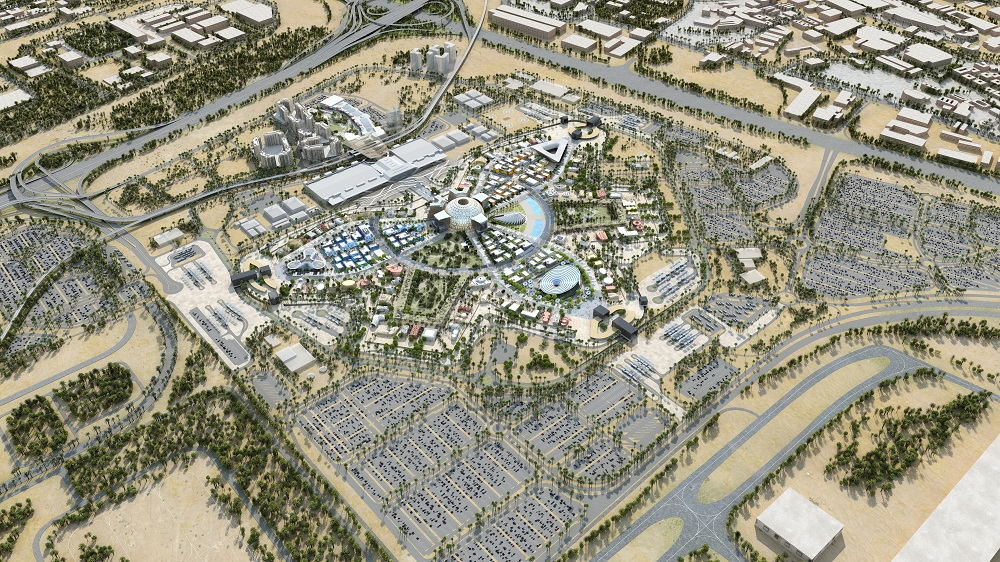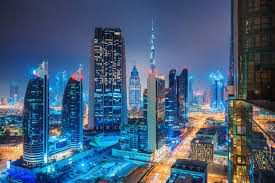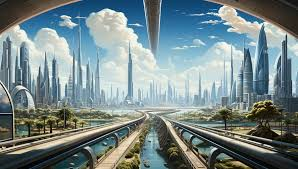
Dubai, the glittering gem of the United Arab Emirates, is known worldwide for its skyscrapers, luxury shopping malls, and futuristic skyline. But the city is not resting on its past glory. Instead, Dubai is shaping a bold, exciting, and technology-driven future that could set an example for cities around the world.

Dubai’s government has laid out an ambitious roadmap called the “Dubai 2040 Urban Master Plan”. This plan focuses on making the city the most desirable place to live, work, and visit. It includes expanding green spaces, building new urban centers, and promoting smart city technologies.
The government is working hard to make Dubai a place where people can enjoy a better quality of life. More public parks, better transportation systems, and sustainable energy projects are in the pipeline. Dubai plans to make 60% of its land nature reserves by 2040. This is a major change in a city known for its concrete jungles.

Technology is the heart of Dubai’s transformation. The city is using Artificial Intelligence (AI), the Internet of Things (IoT), and Blockchain to become smarter and more efficient. The Dubai government wants to be the first in the world to be fully powered by blockchain for its services.
Smart police stations without human staff, AI-driven public transport, and 3D-printed buildings are already here. Dubai has built the world’s first 3D-printed office building and plans to make 25% of its buildings 3D-printed by 2030.
One of Dubai’s most futuristic projects is “Dubai Silicon Oasis”, a tech hub designed for innovation, attracting companies working in robotics, big data, and space technology.
In 2021, Dubai launched the UAE Artificial Intelligence Strategy 2031, which aims to make the country a world leader in AI by the next decade. This will improve healthcare, education, and even public services like road safety and energy efficiency.
Dubai is not just about technology—it remains one of the top tourist destinations in the world. Before the COVID-19 pandemic, more than 16 million tourists visited Dubai in 2019. Now, the city is working hard to reach even higher numbers.
Mega projects such as the Museum of the Future, Ain Dubai (the world’s largest Ferris wheel), and Dubai Creek Tower are all part of making Dubai the “City of the Future.” The Expo 2020 Dubai, though delayed by the pandemic, attracted millions and showcased how Dubai can host global events smoothly.
Dubai is also tapping into eco-tourism. With plans for green hotels and energy-efficient resorts, the city wants to offer responsible and sustainable tourism experiences.
Additionally, Dubai is welcoming digital nomads and remote workers by launching long-term visas for foreigners who want to live and work from the city. This could transform Dubai into a global hub for remote professionals.
For years, Dubai relied heavily on oil revenues. But today, only a small part of its economy depends on oil. Instead, Dubai is focusing on knowledge-based industries like finance, healthcare, education, and tech startups.
The Dubai International Financial Centre (DIFC) is growing fast as a world financial hub, attracting global banks, fintech companies, and investment firms.
Dubai also wants to become the leader in space exploration. The UAE Mars Mission (Hope Probe) successfully reached Mars orbit in 2021, making the UAE the first Arab country to do so. Dubai is building on this success with plans for a human settlement on Mars by 2117. As crazy as it sounds, the city has already built a Mars Science City in the desert to test technologies for future space living.
Dubai’s leadership has set clear goals: not just to be rich and modern, but also to be happy and sustainable. The government measures public happiness and has even appointed a Minister of Happiness. The focus is on mental well-being, work-life balance, and providing services that make life easier and more enjoyable.
Renewable energy is another focus. Dubai’s Mohammed bin Rashid Al Maktoum Solar Park is one of the largest solar farms in the world. By 2050, Dubai wants to produce 75% of its energy from clean sources.
However, this grand transformation does not come without challenges. Dubai faces issues like climate change, water scarcity, and the need to create more affordable housing. The city’s growth depends on maintaining political stability and attracting foreign investment.
Moreover, global economic uncertainties, like oil price drops or political tensions, can impact Dubai’s development plans.
Dubai is not just planning for tomorrow—it is creating it today. With cutting-edge technology, world-class tourism, and a vision for sustainability and happiness, Dubai could set the standard for future cities around the globe.
The coming years will tell whether these grand dreams can fully become reality, but if any city can turn the impossible into possible, it is Dubai.
Read More:- Shobha Realty Launches Its Most Luxurious Project Yet—Full Details Inside 2025
